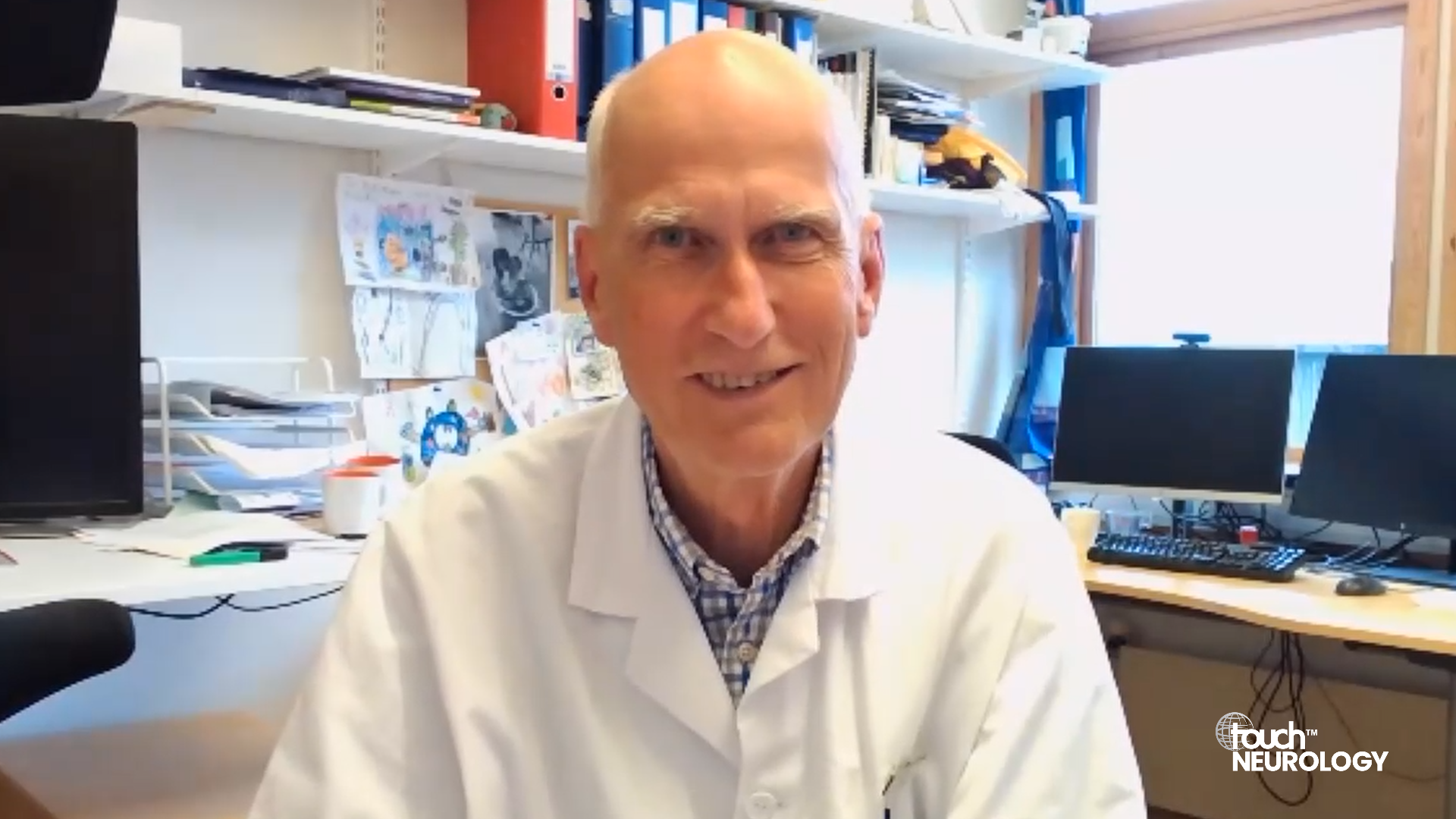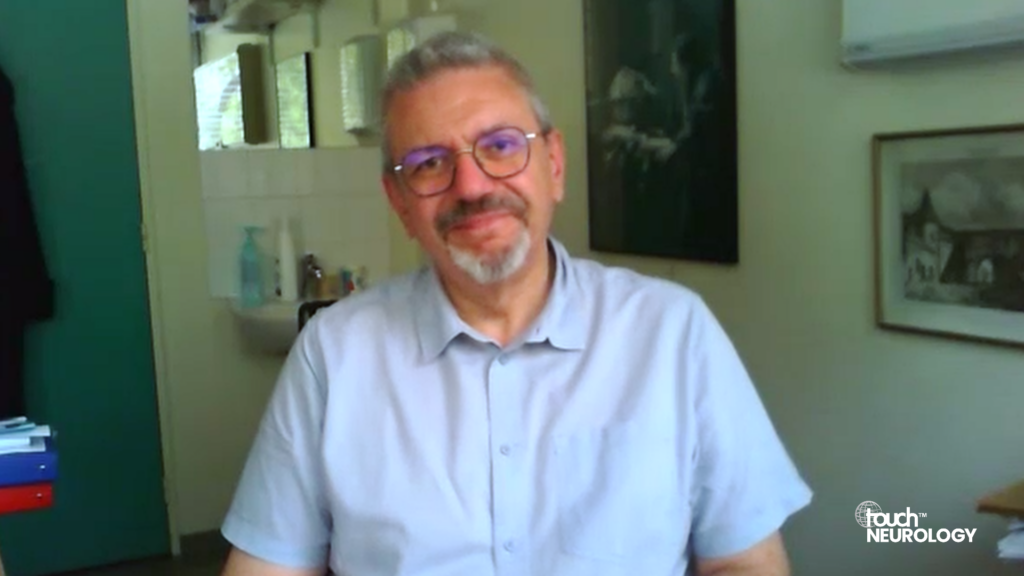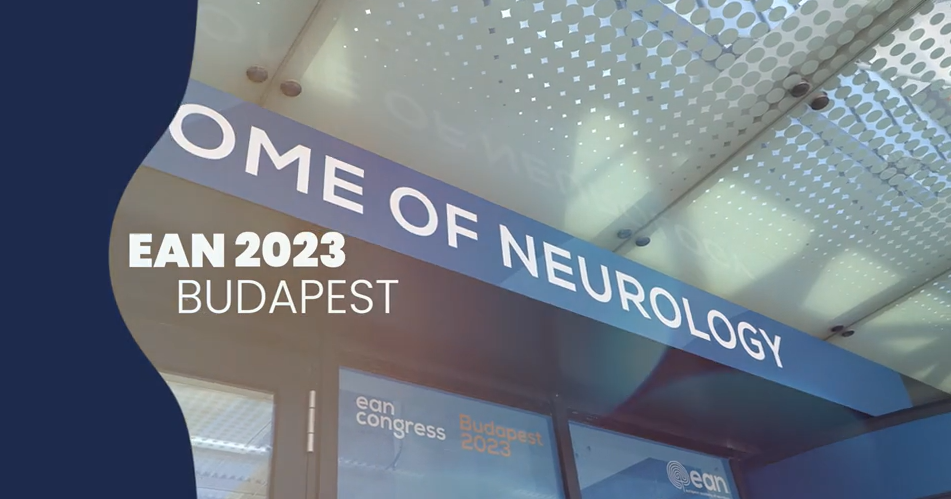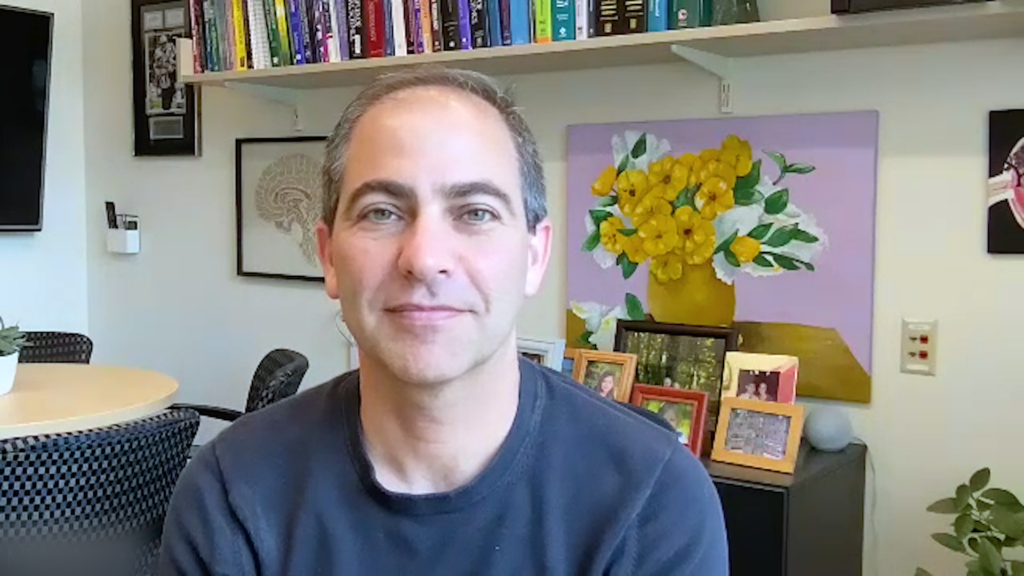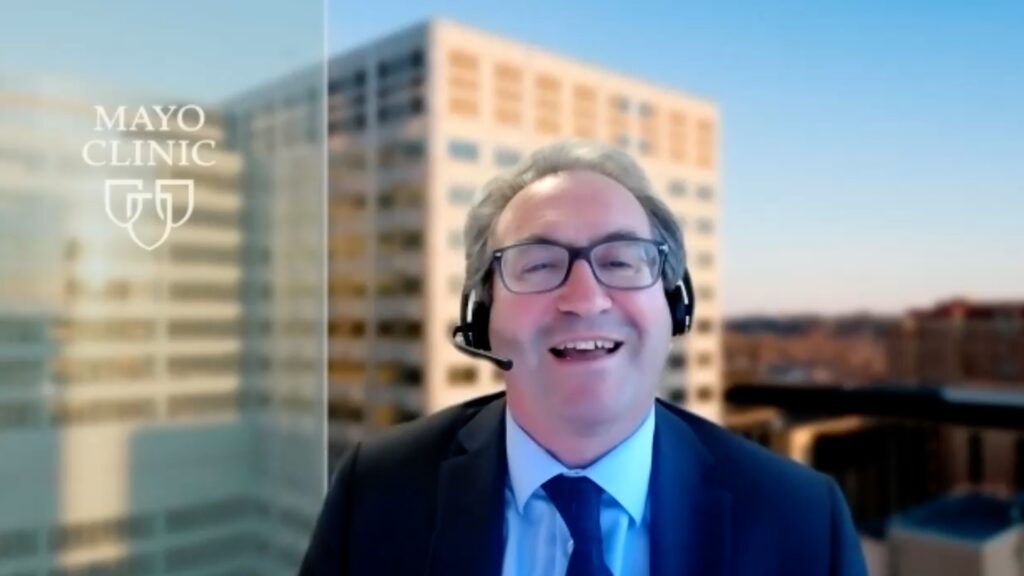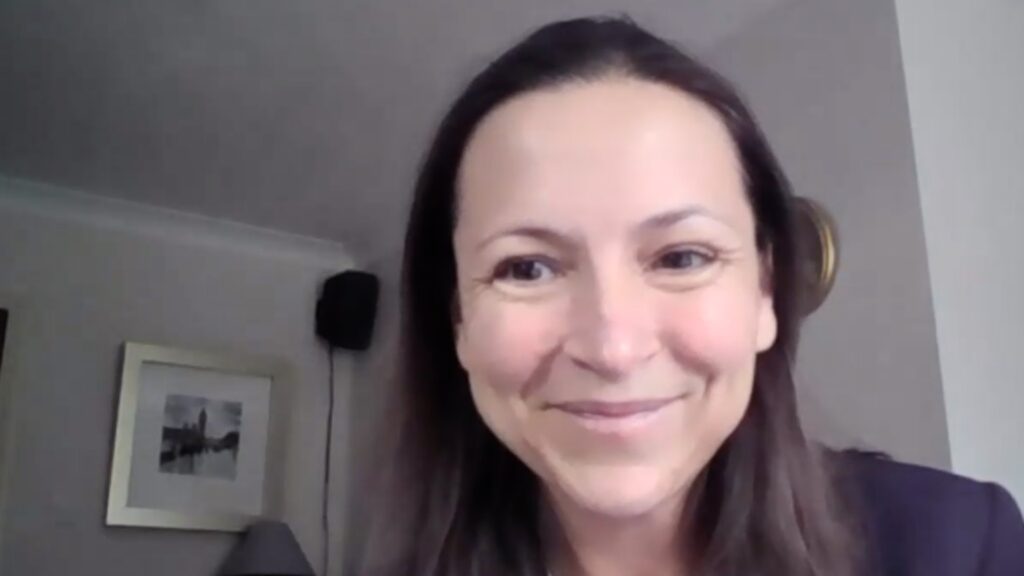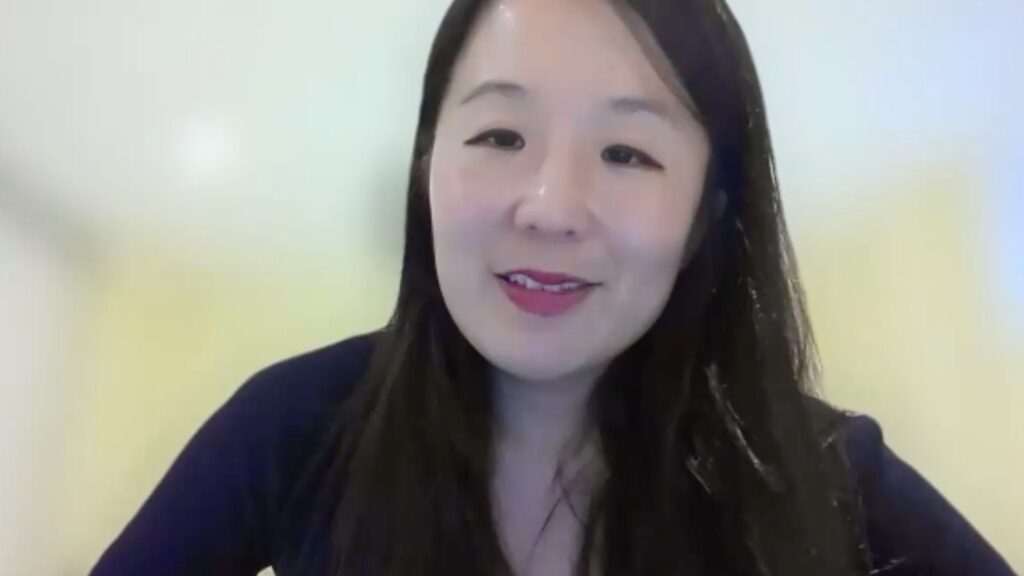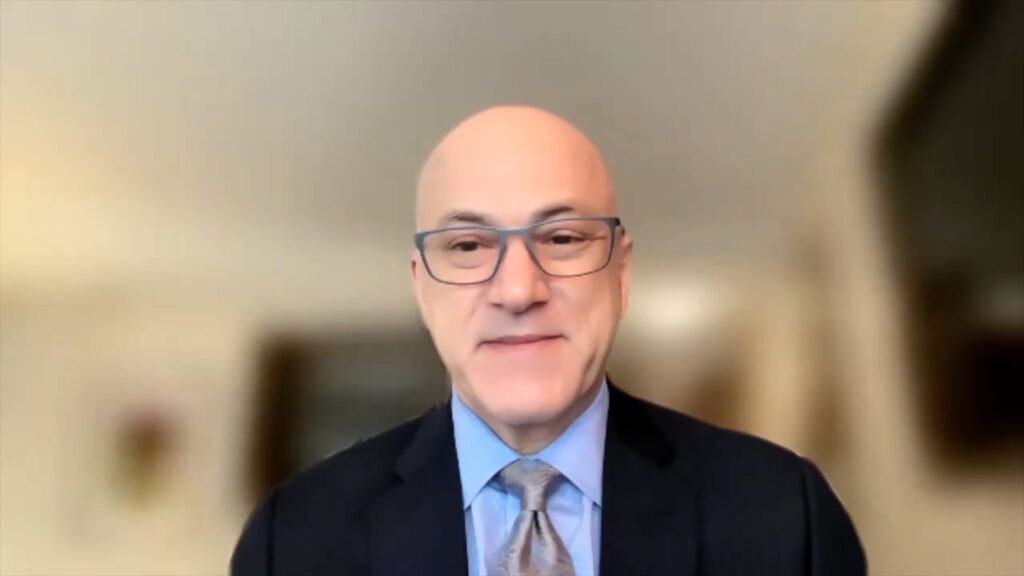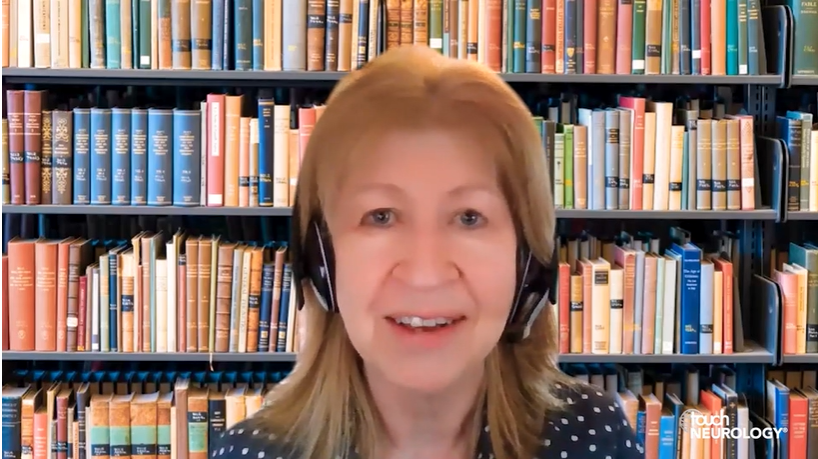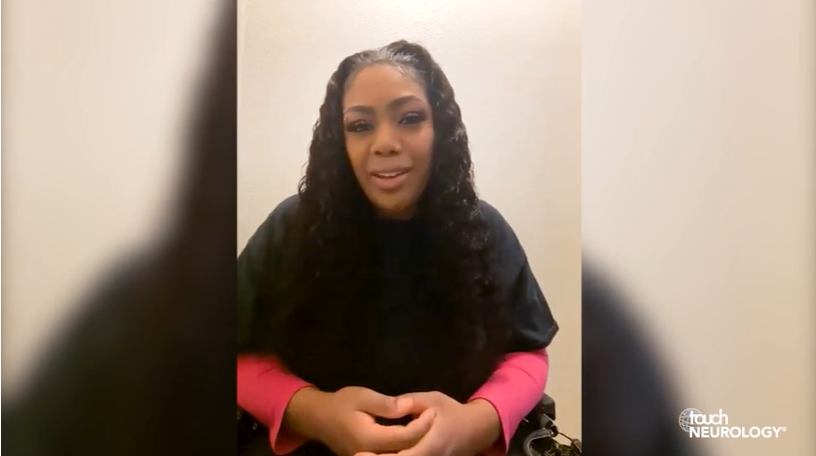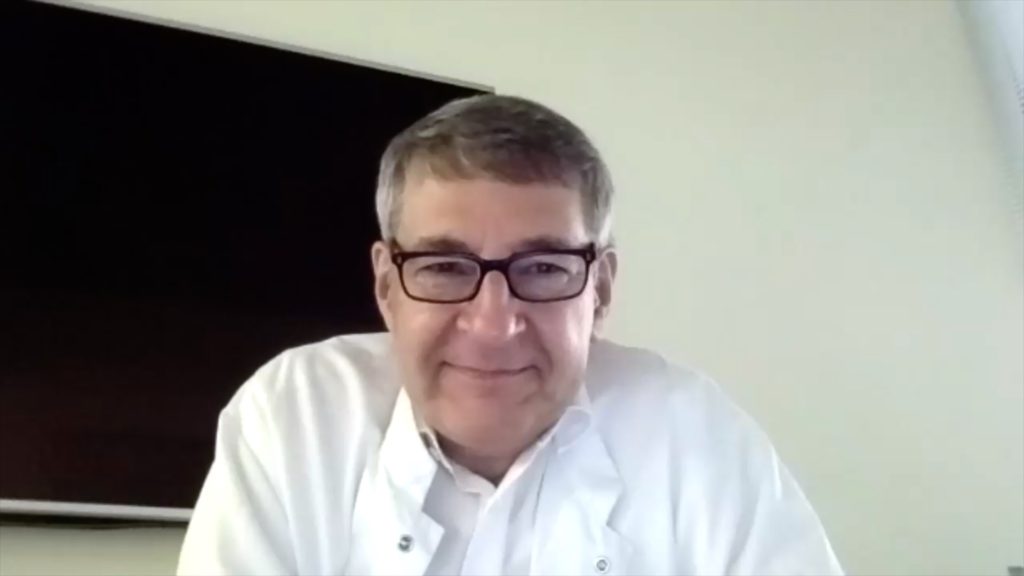CHAMPION-NMOSD (NCT04201262) is a study of ravulizumab in adults with anti-aquaporin-4 antibody-positive neuromyelitis optica spectrum disorder. Ravulizumab binds to the same complement component 5 epitope as eculizumab; however, its longer elimination half-life extends the dosing interval (every 8 versus 2 weeks). In this touchNEUROLOGY interview, we caught up with Dr Michael Levy (Massachusetts General Hospital, Harvard Medical School, Boston, MA, USA) to discuss the results of the efficacy subgroup analyses of the CHAMPION-NMOSD trial.
The abstract entitled ‘Efficacy subgroup analyses from the phase 3 CHAMPION-NMOSD trial in adults with anti-aquaporin-4 antibody-positive neuromyelitis optica spectrum disorder’ was presented at the 75th AAN Annual Meeting, 2023, 22–27 April 2023, Boston, MA, USA.
Questions:
- What was the rationale and main objectives of the phase 3 CHAMPION-NMOSD trial? (00:12)
- Please provide a brief overview of the methods and trial design (01:44)
- What are the next steps, and how might these results impact future clinical practice? (02:45)
Disclosures: Michael Levy is a consultant for, and has received grant/research support from Alexion, Horizon, Genentech, Aeterna Zentaris, UCB and Sanofi. He is also a member of the Advisory Board for Alexion, Horizon, Genentech, UCB and Sanofi.
Support: Interview and filming supported by Touch Medical Media. Interview conducted by Sophie Nickelson.
Filmed as a highlight of the 75th AAN Annual Meeting, 2023
Access more content on neuroimmunology here
Transcript
My name is Michael Levy. I’m an associate professor of neurology at Massachusetts General Hospital in Harvard Medical School.
What was the rationale and main objectives of the phase 3 CHAMPION-NMOSD trial?
The trial itself was testing Ravulizumab in preventing relapses and NMO. Ravulizumab is similar to Eculizumab in that it binds C5 complement and blocks it, but it differs in just four amino acids that allows the antibody to remain in circulation a lot longer compared to Eculizumab.
Eculizumab requires an infusion every two weeks to keep complements suppressed. With Ravulizumab, it’s every eight weeks.
Now, because of the very minor changes, you might think that they could just send it to the FDA for some sort of pharmacokinetics study and approval, but no, the FDA wanted another trial in the NMO patient. Population just like they did in the mice. They need a population where it was just approved. But because NMO attacks are so devastating, they didn’t want another placebo arm. So instead of creating a new trial with a placebo arm and a treatment arm, they used a placebo arm from the recent Eculizumab trial in a study called Prevent.
So, they didn’t have to enroll any new placebo patients, and they only enrolled patients on Ravulizumab and they followed them out for 73 weeks on average and showed that there were no relapses at all, with Ravulizumab compared to the 20 out of 50-something patients in the Prevent study in the placebo arm.
Please provide a brief overview of the methods and trial design
The sub analysis was pre specified. So the plan was we’re going to take all the relapses in the Ravulizumab arm, and then breaking down to see who was successful with this drug and who was not successful with this drug. And it turns out because there were zero relapses, everyone was successful. And so, the subgroup analysis that was pre specified is, it’s a little bit difficult to go up there and say, well, there were zero relapses and let’s look at every group because every group did well, there was no relapses, so zero divided by anything is still gonna be zero. So that included by race, by age, by duration of disease, previous medication, the concurrent medication in any way that you look at it, everyone did well. And they were zero relapses. So the subgroup analysis was a little bit unnecessary, but it was all pre specified. So that’s why I went up there and I said, well, you know, there were zero relapses that’s everyone did well.
What are the next steps, and how might these results impact future clinical practice?
I think one of the more intriguing parts about this study was that the pharmacokinetics were published as well and it shows that complement is inhibited, not just for those eight weeks that the drip for each study period, but it seemed to go even longer. And so there was a question about whether we could extend the dosing interval to maybe ten weeks or twelve weeks even, as long as complement is inhibited to the degree that we want it to be, in theory, that dosing interval might be pushed even longer. Now, people are pretty excited about in every two month infusion and if it could be every three months, I think it would just be easier on our patient population. The current landscape for treatment in NMO includes a drug that’s infused every six months that inhibits B cells that’s Ibalizumab. And then there’s a sub-queue injection, not an intravenous infusion, but an injection that’s once a month. And I think when you have to compete against those logistically simple options, then however you can extend that dosing interval I think would be in the benefit of a company that makes Ravulizumab.

